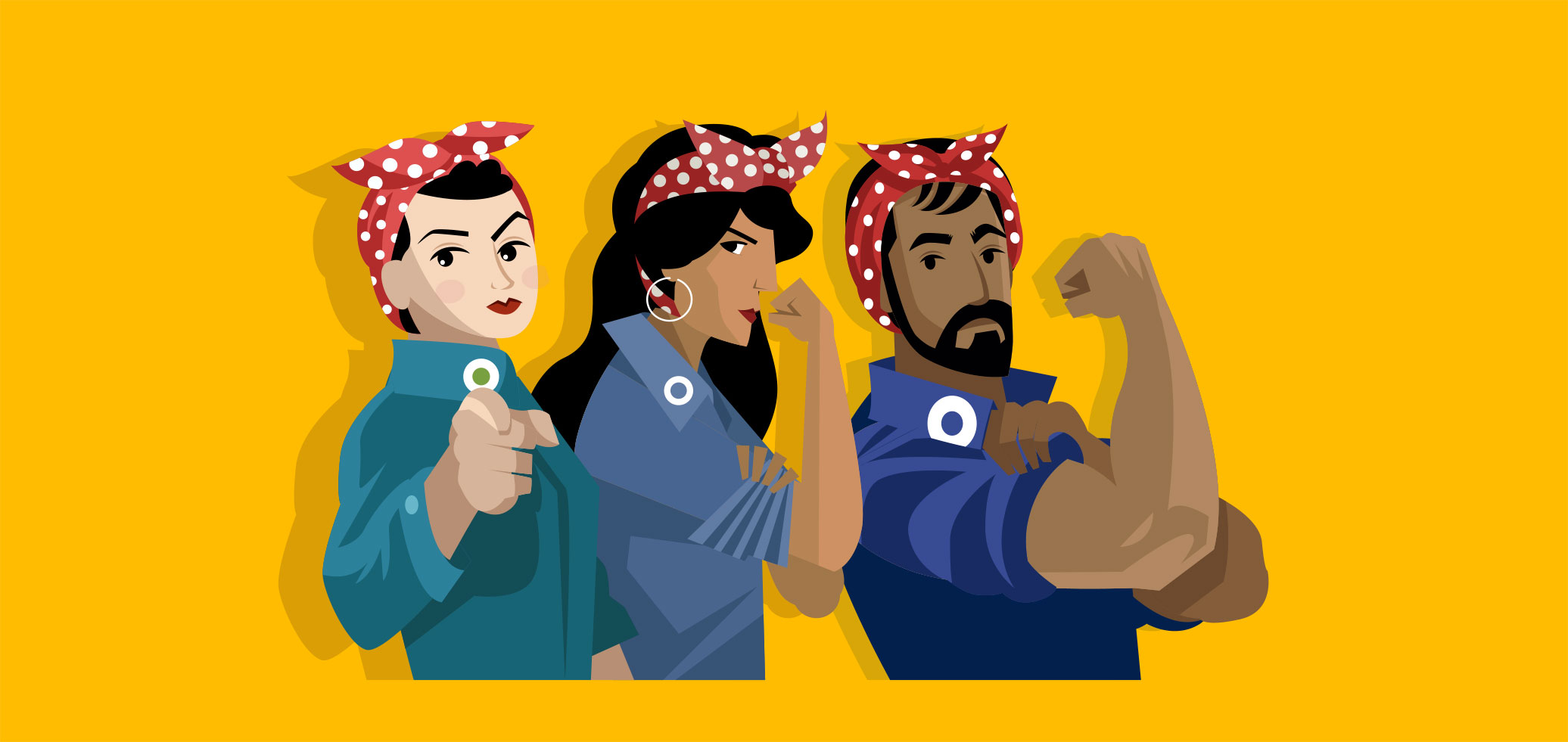When it comes to recruiting employees, there are probably many ways your recruitment team helps prospective employees get to know your company and its culture. After all, company culture, ethics, and work environment all make up a big part of a candidate’s decision to join your team.
However, there’s another area that has a huge impact on a candidate’s decision-making process, and it’s an area that many companies are focusing on more and more.
We’re talking about social good.
When companies do good in their communities through corporate social responsibility (CSR) programs—like corporate volunteerism and matching gifts, for example—this reflects tremendously well on their company’s overall image. That includes how prospective employees view them.
At Double the Donation, we’re experts on CSR and the impact it can have on both companies and nonprofits. That’s why in this article, we’ll discuss the key reasons potential employees care about a company’s social good programs, the benefits of these programs, and how one major company in particular has had a huge impact on its surrounding community. Let’s get started.
Reasons CSR is Important to Candidates
As employees seek out companies to work for in this day and age, they’re focusing on more than just a company’s profitability or products and services. They’re thinking about the company’s reputation in the greater community. In fact, according to a Cone Communications employee engagement study, 55% of employees would choose to work for a socially responsible company, even if it meant a lower salary.
Here are the reasons why.
1. Corporate Volunteerism
When companies promote volunteerism within their communities, more employees are likely to gravitate toward those businesses.
Why? This is because corporate volunteerism:
- Demonstrates to prospective employees that the company cares about giving back to the community.
- Shows that the company is actively looking for ways to get their employees involved in helping worthy causes.
- Proves to be a valuable way for companies to raise awareness around important issues and causes.
As companies promote volunteerism in their communities and encourage their employees to participate in their volunteer programs, this indicates to prospective employees that their values are in line with many important causes all over. After all, 70% of employee donors say it’s important to work for an employer where mission and value align.
Even better, companies that offer paid time off or company-wide days of service are signaling to their community and employees that they take volunteerism very seriously. The same can be said for offering volunteer grants—monetary grants that companies provide to nonprofits where their employees regularly volunteer.
Corporate volunteerism can take several forms, but the impact is the same across the board: companies will be more appealing to prospective employees because of their values.
2. Matching Gifts
When companies offer matching gift opportunities to their employees, more qualified prospective employees will be likely to apply for positions with those companies.
Why? This is because matching gifts:
- Help employee donors to make their gifts go twice as far.
- Allow employees to have a bigger impact on the causes they care most about.
- Show employees that the company values the same causes and organizations that their employees care about.
According to Crowd101’s guide to matching gifts, when companies take part in philanthropic programs like matching gifts, their employees will be more likely to get involved, strengthening employee engagement levels and, as a direct result, their recruitment success.
The fact that more than half of employees would take a lower-paying job at a socially responsible company speaks volumes. A company with controversial values or practices that has a poor reputation won’t attract as much talent, which means the top candidates in those fields will go elsewhere when searching for jobs. Meanwhile, companies with strong CSR initiatives will attract talent from a pool of qualified applicants.
Benefits of Social Good Programs
There are many benefits of offering social good programs as a company, and successful recruitment is just one of them. For many companies, they will notice an uptick in happy employees, employees participating in their CSR programs, and employee engagement at work.
More specifically, here are some of the top benefits of offering social good programs:
1. Employees are happier working for socially responsible companies.
Employees want to enjoy their jobs. They want to be proud of the work they do and the company they work for.
Much of that pride stems from the good companies are doing good at a higher level in the community. That means being socially responsible and promoting employee engagement at the same time.
In fact, according to a recent study by Gallup, 85% of employees in the workplace are not engaged. But it’s been shown that companies with engaged employees are more profitable and have higher productivity levels.
Beyond offering corporate volunteering programs and matching gifts, social good programs include:
- Sponsorships or partnerships
- Community grants
- Other workplace giving programs, like automatic payroll deductions
When companies take an initiative to promote social good, this shows their employees that they take CSR seriously. In fact, employee engagement levels are twice as high among employees who are proud of contributions their companies have made to the greater community.
2. Employees want to be able to give back to the community.
According to a recent survey, 71% of employees say it’s very important to work at a company where the culture is supportive of giving and volunteering.
Companies with a robust giving and volunteer program will be actively promoting participation to their employees. They’ll be raising awareness through employee communications and onboarding materials, reminding employees to log their hours or donations through their company portals, and ensuring employees know how to participate.
Employees want to be able to give back to the community, but it needs to be easy for them to do so through their company’s workplace giving and volunteering programs. And if it is easy, more employees will participate, reinforcing the company’s positive reputation and leading to more recruitable talent.
3. Employees want to build relationships with their coworkers and their company.
It’s safe to say that most employees want to be part of a larger team and community within their work environments. This means companies that offer team-building volunteer events, team volunteer grants for nonprofits, and other workplace giving opportunities that promote camaraderie will benefit all parties involved.
When companies are purposeful about their social good programs and take their efforts even further to include skills-based volunteering and company-wide giving campaigns, employees will be able to build relationships with other individuals they work with—all so they can work toward a common goal.
There are many benefits of social good programs for companies, just as there are benefits for employees. As more and more companies build up their CSR initiatives, employees will be able to make an even greater impact through both their donations and time.
Example in Action: Microsoft
As noted in this list of statistics, Microsoft has one of the highest CSR participation rates. In fact, Microsoft has the world’s most widely used matching gift program, with 65% of employees participating.
Additionally, Microsoft has openly shared its commitment to creating a workplace where everyone can pursue their passions, fulfill their purpose, and empower others.
Large corporations like Microsoft can attract top employees as a result of the social good benefits they offer, but so can smaller businesses around the world. The most important component to focus on is ensuring employees have the power to support causes they care about.
Social good benefits matter to prospective employees. When companies demonstrate their commitment to helping organizations in their communities via matching gifts, corporate volunteerism, and other workplace giving programs, this attracts top talent from all over. Employees want to make a difference in their communities, to be proud of their companies, and to be happy doing the work they do.
From there, companies and their employees will be in a great position to help improve society overall.

Adam Weinger is the President of Double the Donation, the leading provider of tools to nonprofits to help them raise more money from corporate matching gift and volunteer grant programs. Connect with Adam via email or on LinkedIn.






